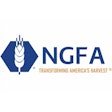
Canada, Mexico and the United States have reached an agreement on a revised North American free trade pact, known as the United States-Mexico-Canada Agreement (USMCA).
The deal, seen as a replacement for the 25-year-old NAFTA, is the result of more than two years of negotiating, reports DW Akademie.
Representatives from the three countries signed the new deal in a ceremony in Mexico City. The pact will now go to their legislatures for final approval.
The USMCA trade agreement will preserve or expand upon critical market access for U.S. agricultural products in the North American market.
In addition to maintaining a tariff-free environment for most agricultural goods, USMCA also will help address non-tariff barriers, which are paramount among the current global challenges that distort and slow cross-border trade flows.
Among other benefits, USMCA will:
- Facilitate cross-border trade flows through higher levels of regulatory coherence and cooperation
- Implement timelines and notifications for adverse import checks
- Include steps to reduce the likelihood of trade disruptions in products of agricultural biotechnology
- Use technical consultations for sanitary and phytosanitary (SPS) disputes
- Require that SPS standards be grounded in science and based on proper risk assessments and implemented using accepted risk management techniques
“We urge the House to expeditiously pass this agreement so it can be ratified by the Senate this year,” National Grain and Feed Association (NGFA) President and CEO Randy Gordon says. “Doing so will be a tremendous win for the United States and the entire North American region and our interdependent economies.”
The final agreement will provide much needed reassurance for the US agricultural industry.
“US wheat growers need to continue trading freely and fairly with Mexico, our largest international customer, and this agreement will finally end that uncertainty,” says Doug Goyings, USW Chairman and a wheat farmer from Paulding, OH. “In addition, if US farmers want to deliver wheat across the border to a Canadian elevator, and that wheat is on Canada’s varietal registration list, under USMCA it will not be downgraded. We hope that this agreement will be approved and implemented quickly so we can move on to negotiating more high-quality trade agreements like USMCA that benefit our economy and our trading partners.”
NAWG hopes that today’s news will motivate Congress to take a vote on USMCA before the end of the year, says NAWG President and Lavon, TX, wheat farmer Ben Scholz.
“Wheat growers view this as a major step in getting USMCA over the finish line and hope that it will help those Members who are undecided to vote ‘yes’ on this critical trade deal," he says.
American Farm Bureau Federation President Zippy Duvall says agriculture is at a critical crossroads with the downturn in commodity prices, losses from natural disasters and the trade war.
"This is an opportunity for Congress not only to help U.S. farmers and ranchers turn the corner on trade, but also show that Washington can still get things done on a bipartisan basis," says Duvall. “Ratification of the USMCA would build on the momentum of the US-Japan agreement, which gave a major boost to American agricultural products in our fourth-largest market, and send a signal that the U.S. is back in business in the international marketplace."
Constance Cullman, American Feed Industry Association's president and CEO, also urges a quick vote.
“Now, with the ratification window quickly closing on 2019 and an election year looming, AFIA strongly urges Congress to bring the agreement to a vote," she says. "Ratifying the agreement will allow U.S. animal food producers to continue to remain competitive in the region while strengthening regulatory engagement and commitments among the three countries."
USMCA BACKGROUND
- Designed to replace the North American Free Trade Agreement, the USMCA builds on important trade relationships in North America.
- The agreement is expected to increase U.S. ag exports by $2 billion and result in a $65 billion increase in gross domestic product.
- The agreement will provide new market access for American dairy and poultry products while preserving the zero-tariff platform on all other ag products.
- In particular, the agreement gives U.S. dairy products access to an additional 3.6% of Canada’s dairy market – even better than what was proposed in the Trans-Pacific Partnership trade agreement.
- U.S. wheat will receive fairer treatment, thanks to Canada’s agreement to grade our wheat no less favorably than its own.
- Mexico and the United States have also agreed that all grading standards for ag products will be non-discriminatory.
- Additional provisions enhance science-based trading standards among the three nations as the basis for sanitary and phytosanitary measures for ag products, as well as progress in the area of geographic indications.
- The agreement also includes measures that address cooperation, information sharing and other trade rules among the three nations related to agricultural biotechnology and gene editing.
















